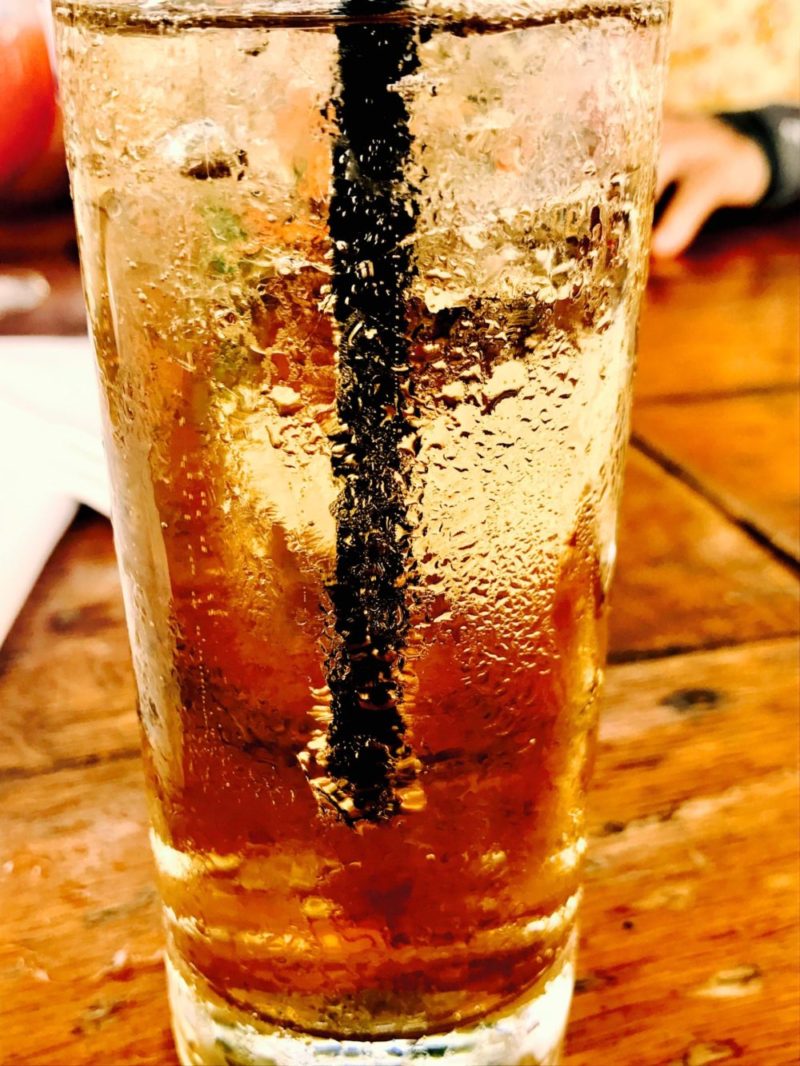
18 May The bittersweet truth: artificial sweeteners
When I am at lunch with girlfriends, and we get iced tea, they all reach for little pink or blue packets to sprinkle into their tea. I don’t. I feel like an outlier but I think I’m making the right choice.
Artificial sweeteners promote weight gain.
Wait, what? All my friends are using them to control their weight. But is it working? Likely not. I have not heard anyone say how easy it is to keep weight off since they use sweeteners. In fact, I’ve heard the opposite. People who give up diet colas often lose weight.
The truth about artificial sweeteners
Sweeteners, such as aspartame, sucralose, and saccharine, have no calories, or at least very few. And they tend to be so sweet that you can use very little. That would be great if the only thing that causes weight gain was calories. Sadly, that’s the least of your concerns, at least for most people. Your body produces insulin when you eat food, especially sweets. Insulin is what sends energy from food to be stored as fat, rather than burned off as energy. The sweeter the food, the more insulin. Insulin blocks access to those fat stores, you know, the ones around your middle. That’s because your body is more of a chemical factory than a furnace.
It’s not how much you eat, it’s what you eat.
So when you consume sweet foods, your body sets in motion all the digestive processes that include pumping out insulin. When your tongue tastes sweetness, whether artificial or real table sugar, the body gets busy and spikes insulin. Even though you might be eating a moderate amount, your body starts storing your food as fat, instead of burning it as energy. Not only that, you get used to that sweet taste. And you want more. Amazing how the body adapts. Give it sweets, and it wants sweets.
A dangerous habit
Artificial sweeteners are suspected of causing cancer. Carcinoma, to be exact. Remember cyclamate? That was banned because of the risk of cancer. Not only is cancer a risk, but liver damage is too. Livers work pretty hard so it’s good not to stress them anymore than you have to.
You’re not an addict, are you? I’m asking because sweeteners are addicting. How many people you know “can’t” give up their diet colas? They’re not weak-willed or stubborn, they have a physical craving that’s hard to deny. Even rats get addicted to artificial sweeteners–they consistently chose sweeteners over cocaine, in one study. And these rats were already addicted to cocaine. Wow.
Diabetes is more likely for those who drink sodas with artificial sweeteners than regular sodas. Amazing, because many diabetics choose sweeteners to help their condition. Diabetes is a dangerous disease and I hate to see people on the wrong track. Drinking diet sodas all day is not guilt-free. The more you drink, the more your insulin promotes fat storage. And the greater your risk for diabetes.
How do you like your formaldehyde? Aspartame converts to formaldehyde in the body. It also breaks down into aspartic acid, a neurotoxin. No wonder aspartame is associated with migraines. That’s not all. Here’s a list that one group found of toxicity symptoms: seizures, headaches, memory loss, tremors, convulsions, vision loss, nausea, dizziness, confusion, depression, irritability, anxiety attacks, personality changes, heart palpitations, chest pains, skin diseases, loss of blood sugar control, arthritic symptoms, weight gain (in some cases), fluid retention, and excessive thirst or urination. Whew. Still want to drink diet cola?
Reducing or removing artificial sweeteners
You can do some tricks to get off artificial sweeteners. First recognize that you have an addiction and it won’t be easy. So have patience with yourself and take it step by step.
Read labels.
Look for not so obvious sources of sweeteners and avoid them. Or better yet, don’t buy foods with a label, because those are your least healthy choices. Or at least buy fewer.
Use honey.
It’s a nutritious whole food. Really. It keeps bees alive. Maple syrup and molasses contain minerals and are choices worth considering.
Use fruit.
How about raisins? Mix that into food. You can make date paste by soaking dates in water and then blending. Add to foods you bake or smoothies. Real fruit has benefits and does not spike insulin the way processed sweets do.
Try stevia.
It reminds me of the taste of an artificial sweetener. It’s often mixed with sugar (dextrose), but you should look for pure stevia. It’s made from a leaf, so it’s not just a packet of chemicals. And it’s sweeter than sugar with fewer carbs.
Just use real sugar.
I drink my coffee black. I used to add milk and sugar, and bit by bit, I reduced that until it was an easy transition to black. Now, I really like the intense coffee flavor, no longer diluted. Just keep in mind that less is more for sugar.
Save sweets for dessert.
That’s what I do. When you combine foods that do not spike insulin, like proteins and fats, they blunt the effect of sweets. So having sweets at the end of a meal has less effect on blood sugar and weight gain.
Minimize artificial sweeteners.
Consider it a necessary evil and consume as little as possible as seldom as possible. Maybe one day the cravings will be so mild you can move on for good.
I can help
Contact me and we’ll find a plan that works for you. I’d love to be your health coach. Getting healthy can be easier with an ally.
Dr. Hyman: Ditch artificial sweeteners
Daily Health Post: Aspartame Dangers
Children’s Health Defense: Artificial sweeteners and liver damage
This article is for information purposes only. See Disclaimer below.



No Comments